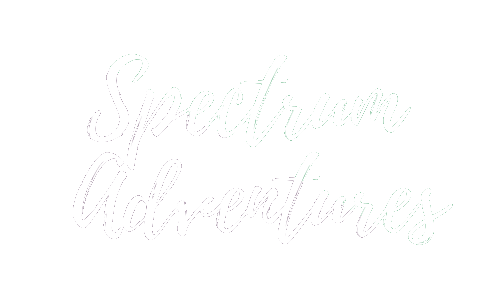Camps & Experiences for Autistic young people & families
Book a Camp or Experience now
Camp bookings are paused.
We have made the decision to pause our camp bookings for now.
We recognise with so much change in the NDIS space, it is becoming increasingly difficult for some families and plan managers wanting to use their community and social funding which is available. We are awaiting updates from the NDIS in their operating guidelines and pricing arrangements – and we look forward to gaining further clarity and understanding.
We are also eager to await outcomes for foundational supports as they are developed and any opportunities or grants we can find to support our autistic community to be supported to connect.
We have shared information around the insights supporting camp and funding models via the Camp Insights link on our menu.
About Our Camps for Autistic Young People
Spectrum Adventures Camps aim to strengthen families and communities by encouraging families of autistic children to build their village with like-minded people.
Families find immense value in hearing about the experiences and shared support of other families going through similar experiences.
Our camps help autistic children and young people develop stronger relationships by providing opportunities for new experiences in a safe and nurturing environment. The program included a range of team work / problem solving activities that encourages personal growth and strengthens family relationships. Parents have often expressed joy and surprise at seeing their child try out a new activity and then develop greater confidence in their own ability.


Our families have found immense joy in watching their children form friendships. Continued friendships are encouraged through the formation of our camp parent network and some camp families now regularly socialise outside of the camp environment.
Young people leave camp with greater self-esteem, knowing that they can achieve. Families leave feeling empowered and connected.
Camp Details
Our camps ran for across two nights and three days. Team building and adventure activities were scheduled to run over the duration, with meals and planned time for socialising in between.
Families engaged in a range of activities that suit various ages and abilities. Parents joined in on activities with their children which in turn helped to develop their capacity and strengthen family relationships.
Peer-led discussions were also offered, allowing parents and teens the chance to share their lived experience and insight, building strength in community.
Studies show that neurodivergent people are more likely to be gender diverse, and identify as part of the LGBTQIA+ community.
Within our camp teen and Autistic community, significant cooccurrence occurs of gender and sexual diversity – these talks are significant in reducing social isolation by creating spaces where LGBTQIA+ young people belong, are celebrated and can make friends, allies can also ask questions for learning.
parent feedback – november 2024
The LGBTQIA+ theme of the teens meeting is really valuable. I’m not sure you all know what a significant difference you have made in our lives. I wasn’t able to tell you over the weekend because the huge emotion it brought up in me just made me cry or want to cry.


Parent education and training was supported with Allied Health sessions during the camp with a range of talks and discussion opportunities helping to deliver learning opportunities to families to understand and support their child’s needs. Informal parent circles gave families the chance to connect as a community and learn about trusted specialists and strategies from others around them.
Each family was provided with a camp welcome book full of articles to guide and educate parents further including understanding and supporting sensory needs, parenting strategies for demand avoidance children, and more.
Our camp library offered parents and children access to additional resources available during camp across a wide range of topics that are autistic led, and include accessible content around neurodivergent experiences.
Parents were able to then return home with new knowledge around such resources, and embed strategies around supporting their children’s needs in everyday life.
Throughout the camp, families were able to access additional activities at their leisure, that develop fine and gross motor skills. Children and adults engaged in arts and crafts, gross motor play equipment, puzzles, board and card games and Lego. This unstructured time allows children the opportunity to practice their social skills and develop friendships. Our camp support staff supported the development of friendships by modelling and encouraging social skills.
Spectrum Adventure’s camps featured a Calming Room developed in consultation with an Occupational Therapist.
The room contained emotional regulation tools and equipment, which helped participants regulate if they were feeling overwhelmed or needed to understand more about their sensory needs to incorporate into everyday life.
Parents and children were able to trial a number of emotional regulation tools and equipment and were able to further develop their knowledge of emotional regulation strategies. Through using the Calming Room, families have also exchanged strategies and have left camp armed with greater knowledge about how to support positive emotional regulation.
Families were accommodated in private rooms to ensure that they have their own personal space to retreat to. The camp was fully catered, with all meals, accommodation and activities provided and co ordinated to meet Autistic family’s needs ( all of this was paid for out of non-NDIS funds and has been since our first camp).






